2017 SESSION
SPEAKERS
EXPLORING AND VISUALIZING IDENTITIES
Understanding our own personal narrative and values are the foundation of designing resistance. Through the act of visualizing and representing our ideals and values we continue to reveal our agency.
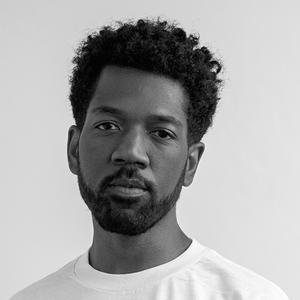
BRANDON BREAUX
Fine Artist/Designer
Brandon Breaux is an Fine Artist/Designer working out of Chicago. His creative experience is comprised of painting, sculpture, web, video, print, and interactive projects. Currently his work contributes to clients marketing efforts, attracting and maintaining consumer loyalty and interest. Widely known as the artist behind all 3 of Chance the Rapper’s iconic album covers, Brandon continues to meet the demands of the evolving market by having a good understanding what inspires an audience and what moves the culture. His primary goal is to produce creative solutions, with authentic sensibility and an undeniable aesthetic.
Brandon Breaux is an American Artist from born in Chicago, IL. His work focuses on identity, the subconscious mind and the fragility of the human psyche. His primary medium is oil paint, occasionally using video, digital illustration, animation and fashion in his works. With the overall goal to use his art to inspire and educate, Breaux uses symbolism to tell a larger story as a way to inform the audience through his perspective.
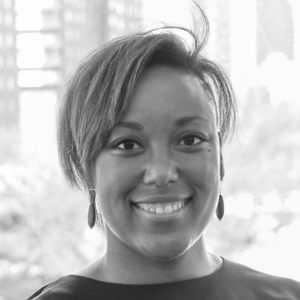
COURTNEY D. COGBURN
Assistant Professor
Columbia University School of Social Work
Dr. Cogburn’s research focuses broadly on the role of racism in producing racial inequities in health. She is particularly interested in improving the characterization and measurement of racism; the health consequences racism; and psychosocial processes that link racism-related stress, disease and disease processes. Her work also explores the potential of media and technology in eradicating racism and eliminating racial inequities in health.
Dr. Cogburn’s research focuses broadly on the role of racism in producing racial inequities in health. She is particularly interested in improving the characterization and measurement of racism; the health consequences racism; and psychosocial processes that link racism-related stress, disease and disease processes. Her work also explores the potential of media and technology in eradicating racism and eliminating racial inequities in health.
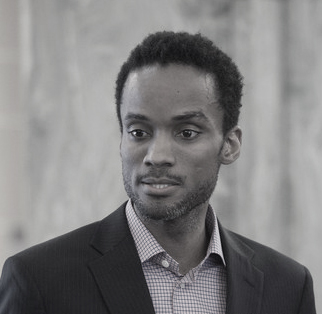
SEKOU COOKE
Registered Architect
Assistant Professor
Sekou Cooke is a Harvard Graduate School of Design and Cornell University educated, Jamaican-born, practitioner and educator. He is currently an Assistant Professor at Syracuse University’s School of Architecture and has taught architectural studios and seminars at New York City College of Technology, California College of the Arts, and Academy of Art University. Sekou is a licensed architect in the states of New York and California.
His current research centers around full-scale prototyping techniques and the emergent field of Hip-Hop Architecture.
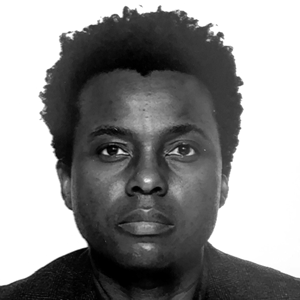
TAU TAVENGWA
Loeb Fellow, Class of 2018
Tau Tavengwa is the founder and co-editor of Cityscapes Magazine a magazine and convening platform focused on exploring and understanding cities in Africa; Latin America and South Asia from the perspective of the wide array of urban actors working in and from the global south. Each issue uses journalism, opinion, interviews and conversations as well as photography and illustration to in an effort to build a coherent voice of those thinking and working on addressing the present and future of cities in the the rest of the world
In the last 18 years, Tau has a worked as a designer in architecture, museum/exhibition design, and art & architecture publishing. His work in he last 10 years has been focused exclusively on urban issues in the global south and manifests in mediums that include exhibitions, books, events and film. He has curated several exhibitions on architecture and design as well as an extensive exhibition about inequality and complexity in the city of Cape Town titled City Desired He was also guest curator on the Rotterdam Architecture Biennale (IABR2016; The Next Economy) among others. Book projects include Counter-Currents and Rogue Urbanism as part of his work with the African Centre for Cities. Tau is former creative director on Art (South) Africa Magazine — one of the continent’s leading art magazines as well as founder and editor of Snapped Magazine — a quarterly publication dedicated to showcasing emerging photographers on the African continent. In a previous life he was creative director and concept designer on the Cradle of Mankind’s Maropeng Museum exhibition in Johannesburg as well as the De Beers Big Hole Diamond Museum in Kimberley, South Africa.
Tau is a 2017-18 Loeb Fellow and is exploring the establishment of a network/movement of policymakers, activists practitioners and academics based and working to tackle various urban challenges in cities across the global south to not only facilitate direct contact and familiarity with each other’s work but also finding ways to collaborate across borders and territories in parts of the world tackling familiar challenges and dealing with common histories.
COMMUNICATING VALUES
Building upon our representations of our values, we explore the platforms to communicate our ideals and the spaces to amplify our voices.
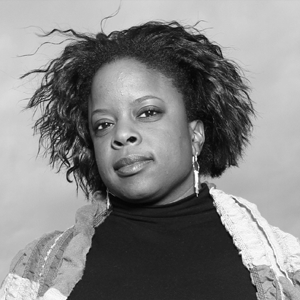
MICHELLE JOAN WILKINSON
Museum Curator, Smithsonian Institution, National Museum of African American History and Culture
Michelle Joan Wilkinson, Ph.D. is a curator at the Smithsonian Institution, National Museum of African American History and Culture (NMAAHC). Wilkinson co-curated two of the inaugural exhibitions for the new museum: A Changing America: 1968 and Beyond and A Century in the Making: Building the National Museum of African American History and Culture. Wilkinson is also expanding the museum’s collections in architecture and design.
Wilkinson spent six years as Director of Collections and Exhibitions at the Reginald F. Lewis Museum of Maryland African American History & Culture. In that capacity, she curated over twenty exhibitions, including A People’s Geography: The Spaces of African American Life and two award-winning shows—Material Girls: Contemporary Black Women Artists and For Whom It Stands: The Flag and the American People. Her interdisciplinary work spans art and history museums, and the terrains of American studies, African Diaspora studies, and cultural studies.
Wilkinson holds a B.A. from Bryn Mawr College and a Ph.D. from Emory University. As a 2012 fellow of the Center for Curatorial Leadership in New York City, she completed a short-term residency at the Design Museum in London. Wilkinson’s current research project, “V is for Veranda,” about architectural heritage in the Anglophone Caribbean, has been presented to international audiences in Suriname, England, India, and the United States.
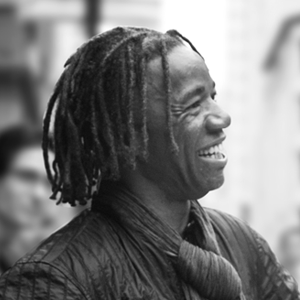
WALTER HOOD
Creative Director of Hood Design Studio
Walter Hood is the Creative Director and Founder of Hood Design Studio in Oakland, CA. He is also a professor at the University of California, Berkeley and lectures on professional and theoretical projects nationally and internationally.
Hood Design Studio is tripartite practice, working across art + fabrication, design + landscape, and research + urbanism. The resulting urban spaces and their objects act as public sculpture, creating new apertures through which to see the surrounding emergent beauty, strangeness, and idiosyncrasies.
The Studio’s award winning work has been featured in publications including Dwell, The Wall Street Journal, The New York Times, Fast Company, Architectural Digest, Places Journal, and Landscape Architecture Magazine. Walter Hood is also a recipient of the 2017 Academy of Arts and Letters Architecture Award.
MOBILIZING AND ORGANIZING
Through coalition building, we identify collaborators who share our values and offer unique perspectives. Together we craft a design that can be used to organize and build capacity within our communities.
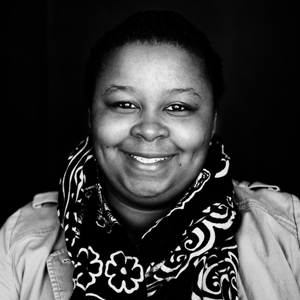
ANTIONETTE D. CARROLL
Founder and President of Creative Reaction Lab
Antionette D. Carroll is the Founder and CEO of Creative Reaction Lab, a nonprofit social enterprise that educates, trains, and challenges cities to co-create solutions with Black and Latinx populations to design healthy and racially equitable communities. Within this capacity, Antionette has pioneered a new form of creative problem solving called Equity-Centered Community Design.
Throughout her career, Antionette has worked for non-profits working for social justice, human rights, and diversity and inclusion. These experiences led to her background as a social entrepreneur, non-profit leader, and design activist. Antionette’s personal mission in life is to CHALLENGE standards, make CHANGE, and CHAMPION approaches resulting in foundational and community impact.
Also, Antionette is an active community volunteer. Antionette was named the Founding Chair of the Diversity and Inclusion Task Force of AIGA: The Professional Association of Design in 2014. Currently, she’s the Chair Emerita of the Task Force working on long-term strategic initiatives such as the Design Census Program with Google and national Inclusivity in Design Summit. With her encouragement, AIGA created the first Racial Justice by Design program, with Antionette co-organizing and assuming the role of online producer for the national Town Hall in 2016. At the local level, she is currently serving as President Emerita of AIGA St. Louis and co-founder of the Design + Diversity Conference. Antionette also sits on several awards and programming committees for local and national non-profits, including the steering committee for The City of St. Louis’ Resiliency Office, supported by Rockefeller Foundation, and formerly the founding anti-bias/anti-racism committee for City Garden Montessori School.
Antionette is a Next City Vanguard, 2017 Essence Magazine #100 Most Woke Woman, Subject Matter Advisor for Rockefeller Foundation’s 100 Resilient Cities, StartingBloc Fellow, and an American Express/Ashoka Emerging Innovator.
Antionette also is an international speaker and facilitator, previously speaking at Microsoft, NASA, TEDxHerndon, AIGA National Conference, The Ohio State University, and more.
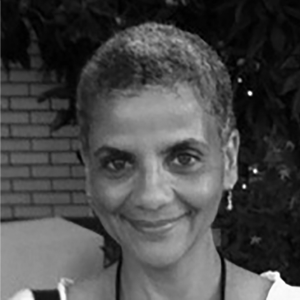
DIANE JONES ALLEN
D. Eng., MLA, ASLA, RLA
Diane Jones Allen has 30 plus years of experience in professional practice focusing on land planning, and varied scales of open space and park design, including community development work. She is currently the Program Director for Landscape Architecture, the College of Architecture Planning, and Public Affairs at the University of Texas at Arlington. Diane was a tenured professor in Landscape Architecture, School of Architecture and Planning at Morgan State University in Baltimore, Maryland. She is Principal Landscape Architect with DesignJones LLC in New Orleans, Louisiana. In 2016, DesignJones LLC received the American Society of Landscape Architects (ASLA) Community Service Award.
Her research and practice is guided by the intersection of environmental justice and sustainability in African-American cultural landscapes, including “Nomadic” responses to “Transit Deserts,” places of increasing transportation demand and limited access, as discussed in her book “Transit Deserts; Race, Transit Access, and Suburban Form”.
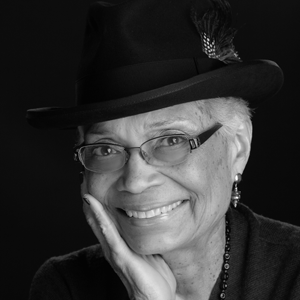
DR. SHARON EGRETTA SUTTON
FAIA
Dr. Sharon Egretta Sutton, FAIA is an activist educator and scholar who promotes inclusivity in the cultural makeup of the city-making professions and in the populations they serve, and also advocates the use of participatory planning and design strategies in low-income and minority communities. Her scholarship explores America’s continuing struggle for spatial and educational equity, and documents young people’s leadership role in advancing that struggle.
Dr. Sutton holds five academic degrees—in music, architecture, philosophy, and psychology—and has studied graphic art in independent studios internationally. A registered architect, she was the twelfth African American woman in the nation to become a licensed architect, the second elevated to fellowship in the American Institute of Architects (AIA), and the first promoted to full professor of architecture in an accredited degree program.
In addition to receiving the AIA Whitney M. Young Jr. Award and the Medal of Honor from both the AIA New York and AIA Seattle chapters, Dr. Sutton is a distinguished professor of the Association of Collegiate Schools of Architecture and an inductee into the Michigan Women’s Hall of Fame. Formerly, she was a Kellogg National Fellow, a Danforth Fellow, and president of the National Architectural Accrediting Board.
Dr. Sutton currently teaches at Parsons School of Design and is professor emerita of architecture, urban design, and social work at the University of Washington.
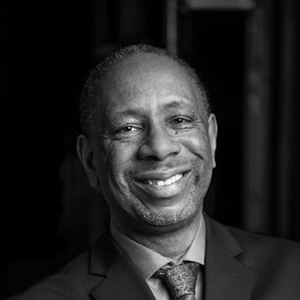
CEASAR MCDOWELL
Professor of the Practice of Civic Design, Department of Urban Studies and Planning, MIT
Ceasar McDowell is Professor of Practice of Civic Design at MIT’s Department of Urban Studies and Planning. As founder of MIT’s Co-Lab (previously named Center for Reflective Community Practice), Ceasar developed the critical moments reflection method to help communities build knowledge from their practice or, as he likes to say, “to know what they know.” Through his work at the global civic engagement organization, Engage The Power, he developed The Question Campaign: a method for expanding the public’s role in setting policy frameworks and action. At MIT, Ceasar teaches on civic and community engagement and the use of social media to enhance both.
Ceasar brings his deep commitment to the work of building beloved, just and equitable communities that are able to – as his friend Carl Moore says – ”struggle with the traditions that bind them and the interests that separate them so they can build a future that is an improvement on the past.” He is currently working to develop “CivicDesigners”, a platform for developing a new infrastructure for democracy in the US.
DESIGN FUTURING
By imagining more equitable futures we can propose more radical design solution in the present. Design Futuring is therefore the core principle to the new model of design practice we are proposing.
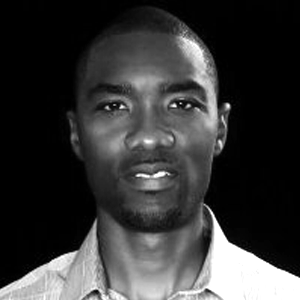
K. WYKING GARRETT
President, Africatown Community Land Trust
A third generation community builder, social entrepreneur and recognized change agent from the Africatown-Central District neighborhood in Seattle WA, Wyking design programs and initiatives that catalyze, mobilize and activate communities for social impact. He is the chief strategist for the Africatown Seattle community development initiative and has been a co-catalyst for several ventures including the Africatown Community Land Trust, Liberty Bank Building, Umoja PEACE Center, Hack The CD, Black Dot and Africatown Center for Education Innovation. Wyking was the recipient of the 2014 Center for Ethical Leadership Legacy Leadership Award, Tabor 100 2016 Crystal Eagle Award. He is also an inaugural member of the Seattle Music Commission and past fellow with national green advocacy organization, Green For All.
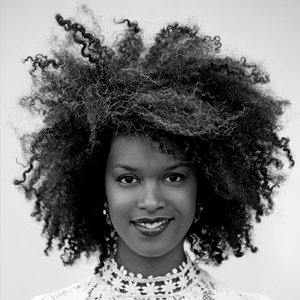
INGRID LAFLEUR
Curator, Artist, and Founder of AFROTOPIA
Ingrid LaFleur is a cultural producer, arts advocate, and founder of AFROTOPIA. Based in Detroit, AFROTOPIA is an evolving creative research project that investigates the possibilities of using the arts movement Afrofuturism as psychosocial healing. AFROTOPIA includes a film series, classes for youth, monthly book club, a Dj-in-residence program, a performance art festival and an Afrofuturism Archive.
Known for her expertise on Afrofuturism, LaFleur frequently presents her work. She has spoken at Centre Pompidou, Bucknell University, TEDxDetroit, Art Institute of Chicago, Black Portraiture[s] Conference in Johannesburg, and more. Within her artistic practice, using sculpture, sound, site-specific installation and performance, LaFleur further unpacks ideas around trauma, which have arisen as a result of audience engagement through AFROTOPIA. She has exhibited in the Something Else Off Biennial in Cairo, Egypt; Iwalewahaus at the University of Bayreuth in Bayreuth, Germany; Cranbrook Art Museum, the Pulitzer Foundation, among others.
As a dedicated arts advocate, LaFleur is a founding member of the advocacy group Detroit Culture Council (DCC), serves as board chair of Power House Productions, board member of the Cooley Reuse Project and advisory board member of Culture Lab Detroit. In 2017, LaFleur announced her candidacy for mayor of Detroit. LaFleur is based in Detroit, Michigan.
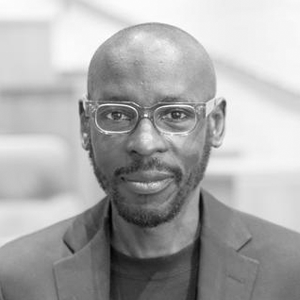
MARIO GOODEN
AIA, B.S., M.Arch
Mario Gooden is principal of Huff + Gooden Architects whose practice is dedicated to the creation of architecture as an exploration of culture and knowledge. Gooden is an award winning architect and his firm’s work has been featured in journals and publications including Architect Magazine, Architectural Record Magazine, Metropolis, Wallpaper, The New York Times, Architecture & Urbanism (A+U) and ARTFORUM International Magazine.
Huff + Gooden Architects work has been exhibited nationally and internationally including the International Exhibition of Architecture Biennale in Venice, Italy, the Netherlands Architecture Institute (NAi), the National Building Museum in Washington, DC, and the Municipal Arts Society in New York. His firm is currently designing the California African American Museum in Los Angeles. He previously worked in the offices of Zaha Hadid in London and Steven Holl in New York.
Gooden is also a Professor of Practice at the Graduate School of Architecture Planning and Preservation (GSAPP) of Columbia University where he is the co-director of the Global Africa Lab (GAL). Gooden’s work, writings, and lectures frequently examine art + architecture and the spatial politics of race, class, gender, and technology.
His urban and cultural theory research was published at the Dubai Initiative’s Urbanism in the Middle East: A Search for New Paradigms in 2011 and Layered Urbanisms (Yale University, 2008). He is the editor of Global Topologies: Converging Territories (Columbia University, 2013). Gooden teaches advanced architectural design and theory at Columbia University where his studios focus on global topics and cultural theory. He is a 2012 National Endowment for the Arts Fellow and a MacDowell Colony Fellow. Gooden is the author of Dark Space: Architecture Representation Black Identity published by Columbia University Press in 2016.
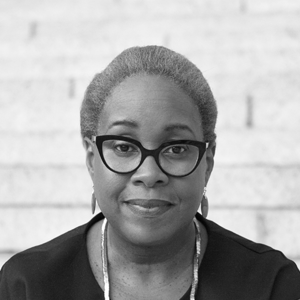
MABEL O. WILSON, PHD.
Professor Architecture, Columbia GSAPP
Mabel O. Wilson is a scholar, designer, and artist. At Columbia University, she is a Professor of Architecture, a co-director of Global Africa Lab and a faculty fellow at the Institute for Research in African American Studies. Along with two books, she has published widely in journals, essay collections, and publications. She’s currently writing Building Race and Nation a book about how slavery influenced early American civic architecture.
She is a collaborator in the design team currently developing designs for the Memorial to Enslaved African American Laborers at the University of Virginia. Exhibitions of her work have been featured at the Art Institute of Chicago, Istanbul Design Biennale, Wexner Center for the Arts, and the Smithsonian’s Cooper Hewitt National Design Museum’s Triennial. She’s a founding member of Who Builds Your Architecture? (WBYA?) a collective that advocates for fair labor practices on building sites worldwide and whose work is on view at the Art Institute of Chicago till mid-June 2017. She is one of twelve curators contributing to MoMA’s major exhibition “Frank Lloyd Wright at 150: Unpacking the Architecture” on view from mid June thru October 2017.. She has a B.S. in Architecture from University of Virginia, M.Arch from Columbia University, and a PhD. In American Studies from New York University.
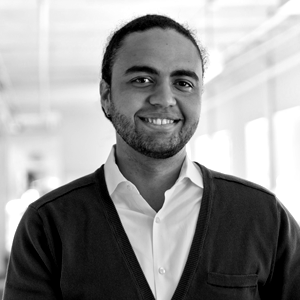
STEPHEN GRAY
Assistant Professor of Urban Design,
Harvard Graduate School of Design
Stephen Gray is Assistant Professor of Urban Design with experience working in complex urban environments with municipal agencies, colleges and universities, private developers, non-profits, and the public. His interests center on the intersection of design and engagement as tools for empowerment as well as drivers for the production of progressive urbanism. His research focuses on (1) humanist approaches to urban design at the intersection of politics, power, race, and place; (2) socioecological urban design approaches to urban resilience; (3) urban peacescapes that integrate peacebuilding, development, and urban design; and (4) implementation strategies for urban design projects across social, political, spatial, temporal, and geographic scales.
Current projects includes the Harvard Mellon Urban Initiative where his team is revisiting well-known places in Boston through graphic collage and digital animation of archival sources to highlight the role of a collision of racially biased policies and civil disobedience; and the design and implementation of child-focused public space facilities to improve the quality of life for Syrian refugee families in Lebanon. He is cochairman of Boston’s 100 Resilient Cities Resilience Collaborative providing thought leadership for “Resilient Boston: An Equitable and Connected City” as Boston works to adopt a resilience lens for all planning, policies, and practice.
Prior to joining the GSD, Stephen collaborated with and led cross-disciplinary teams at Sasaki Associates and was a lecturer at MIT School of Architecture and Planning and at Northeastern University School of Architecture
